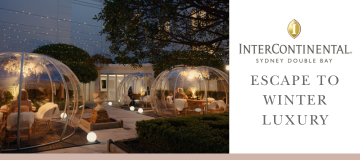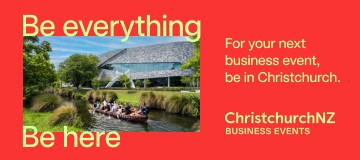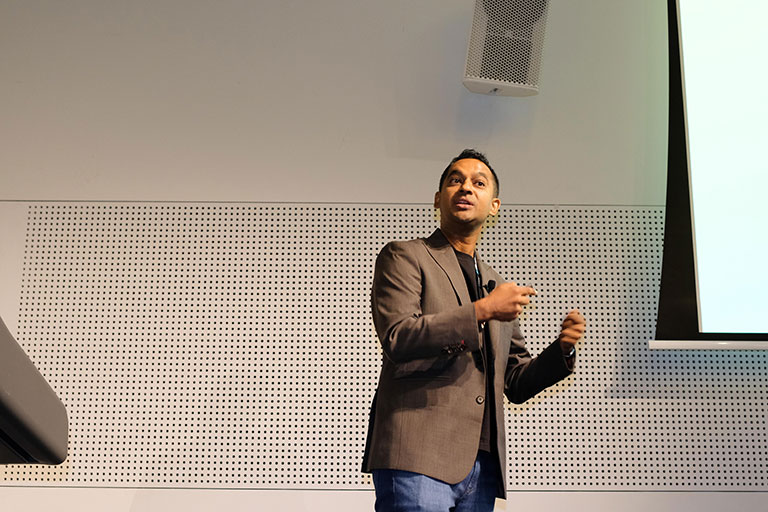The AI session, How AI can boost your event profit and purpose, was presented by the Professional Convention Management Association (PCMA) as part of the professional development offering at the Asia Pacific Incentives and Meetings Event (AIME).
It was aimed at event planners, business event suppliers and anyone interested in applying AI to an event.
Veemal Gungadin, co-founder and CEO of event tech business Gevme, presented figures suggesting those in the professional services sector could expect that 56 per cent of their work would be undertaken by generative AI, however 36 per cent of their workload would remain “intrinsically human”
Gungadin said AI itself would not take over your role, “but somebody who has been trained to use AI will take it over”.
He showed a range of apps including Gevme, an omni-channel event management platform with tools including Spark which can be used to perform a range of the more mundane tasks more efficiently than humans, including summarising, turning event proceedings into text, in the form of e-books, translations or closed captions.
Other tools he mentioned included Microsoft’s Copilot, Notion, AdCreative.ai and an AI sales call generator which he said had been banned by US authorities.
Earlier in the Knowledge Program, plenary keynote speakers were Lisa Ronson and Sebastian Terry.
A marketing expert with prior leadership roles at Tourism Australia and Coles, Ronson spoke on leadership and culture in an era of “glocalisation”. Glocalisation is roughly defined as taking local contexts (cultural, customer preferences and legal issues) into consideration in the move to globalisation.
She said that while figures suggested 79 per cent of people leave an organisation because of poor leadership, you can learn as much from poor leadership as good.
Sebastian Terry described the epiphany he experienced on the sudden death of a friend at just 25. He then made a decision that would change his life and take him around the world: he wrote down a bucket list of 100 things he wanted to do before he died and then set out to achieve them, including getting married for one day to a stranger in Las Vegas, delivering a stranger’s baby and pushing a quadriplegic in a wheelchair for a half-marathon. With a combination of well-timed humour and self-deprecation Terry engaged his audience, delivering life lessons along the way.
Passion he said was a key ingredient of his success and he told the audience: “When we are passionate about the things we do, we make the world a better place.”
Another well-subscribed popular presentation by Stephen Koukoulas, managing director of Market Economics, promised attendees an insight into which sectors of the economy might do well in 2024 and beyond.
Those who had clients in the following industries were smiling: tourism, superannuation, real estate, defence procurement and motor vehicles.
By contrast, weaker areas he flagged include retail, hospitality – still recovering from COVID – and telcos.
“We as Australian consumers are reacting to cost of living pressures, interest rate hikes and we were reacting to falling real wages; it might be the mid-sized retailers impacted – the so-called discretionary spend,” he said.
“And with telcos, well we’ve all got a mobile phone now so how many more can we possibly buy?”




















